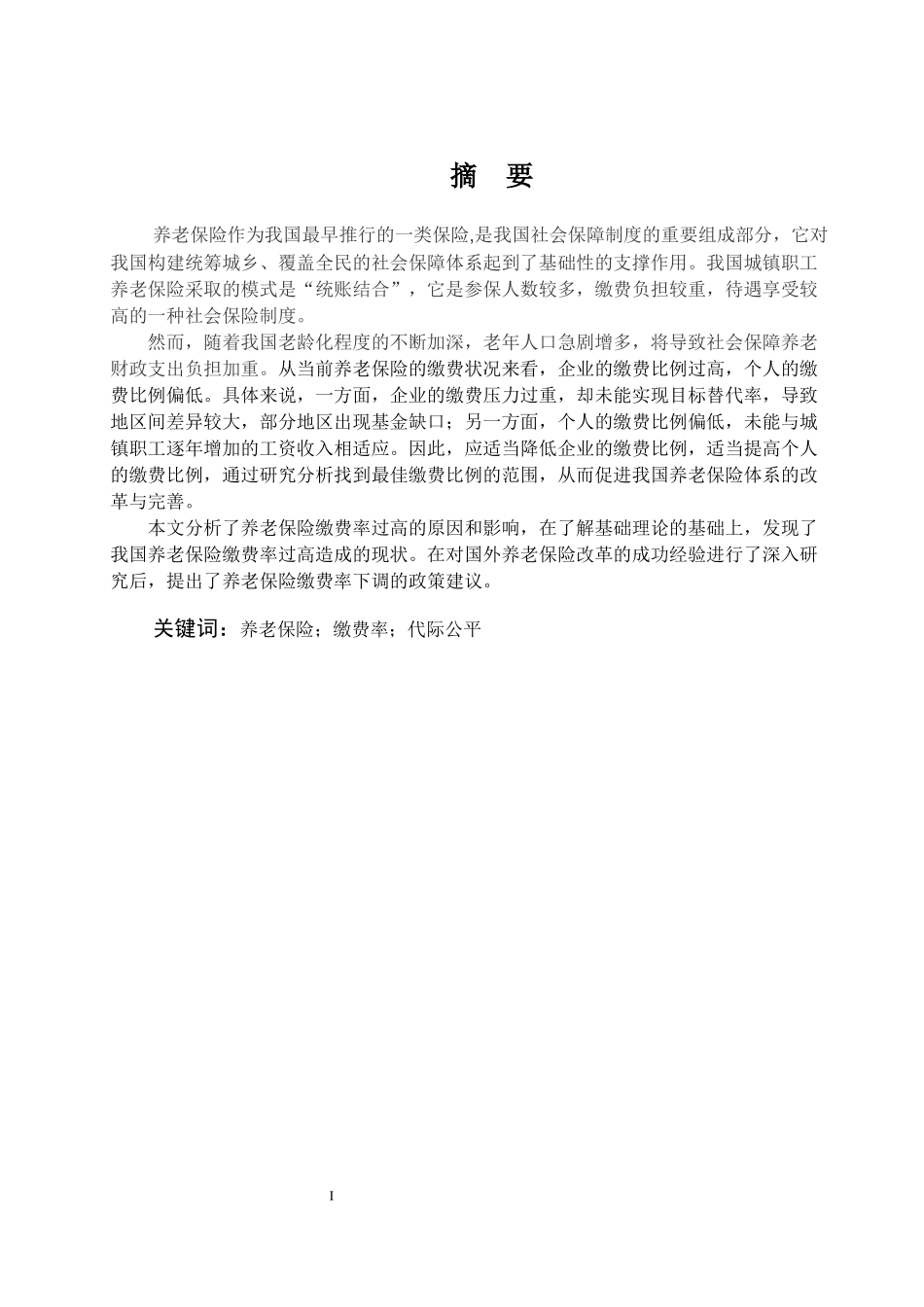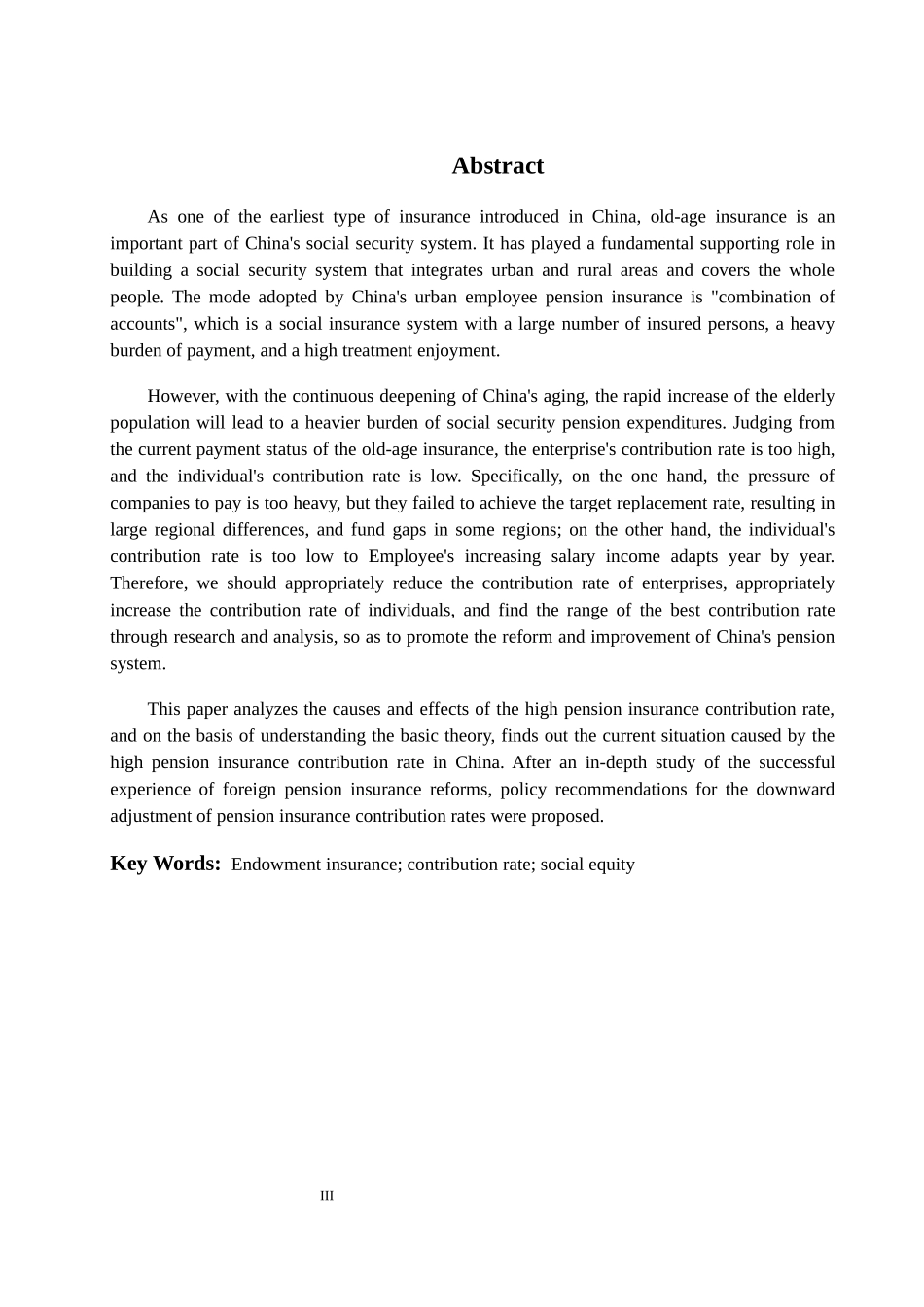I摘 要 养老保险作为我国最早推行的一类保险,是我国社会保障制度的重要组成部分,它对我国构建统筹城乡、覆盖全民的社会保障体系起到了基础性的支撑作用。我国城镇职工养老保险采取的模式是“统账结合”,它是参保人数较多,缴费负担较重,待遇享受较高的一种社会保险制度。然而,随着我国老龄化程度的不断加深,老年人口急剧增多,将导致社会保障养老财政支出负担加重。从当前养老保险的缴费状况来看,企业的缴费比例过高,个人的缴费比例偏低。具体来说,一方面,企业的缴费压力过重,却未能实现目标替代率,导致地区间差异较大,部分地区出现基金缺口;另一方面,个人的缴费比例偏低,未能与城镇职工逐年增加的工资收入相适应。因此,应适当降低企业的缴费比例,适当提高个人的缴费比例,通过研究分析找到最佳缴费比例的范围,从而促进我国养老保险体系的改革与完善。本文分析了养老保险缴费率过高的原因和影响,在了解基础理论的基础上,发现了我国养老保险缴费率过高造成的现状。在对国外养老保险改革的成功经验进行了深入研究后,提出了养老保险缴费率下调的政策建议。关键词:养老保险;缴费率;代际公平IIIIIAbstractAs one of the earliest type of insurance introduced in China, old-age insurance is an important part of China's social security system. It has played a fundamental supporting role in building a social security system that integrates urban and rural areas and covers the whole people. The mode adopted by China's urban employee pension insurance is "combination of accounts", which is a social insurance system with a large number of insured persons, a heavy burden of payment, and a high treatment enjoyment.However, with the continuous deepening of China's aging, the rapid increase of the elderly population will lead to a heavier burden of social security pension expenditures. Judging from the current payment status of the old-age insurance, the enterprise's contribution rate is too high, and the individual's contribution rate is low. Specifically, on the one hand, the pressure of companies to...












